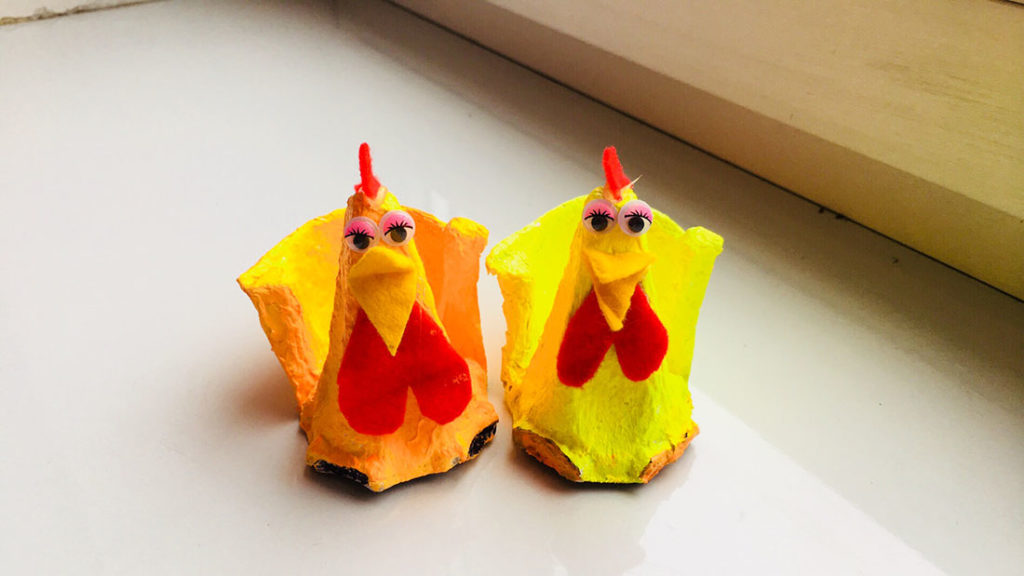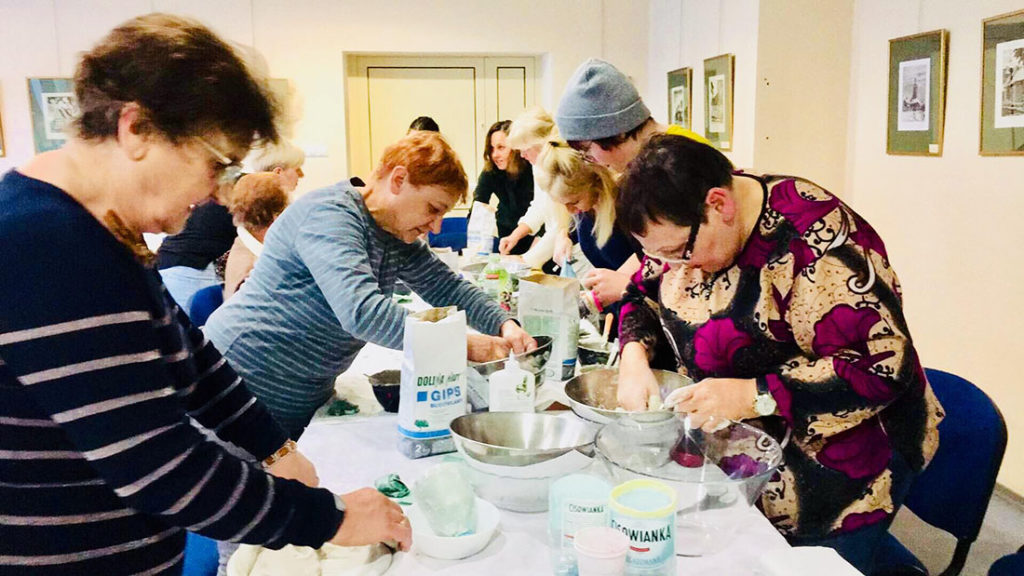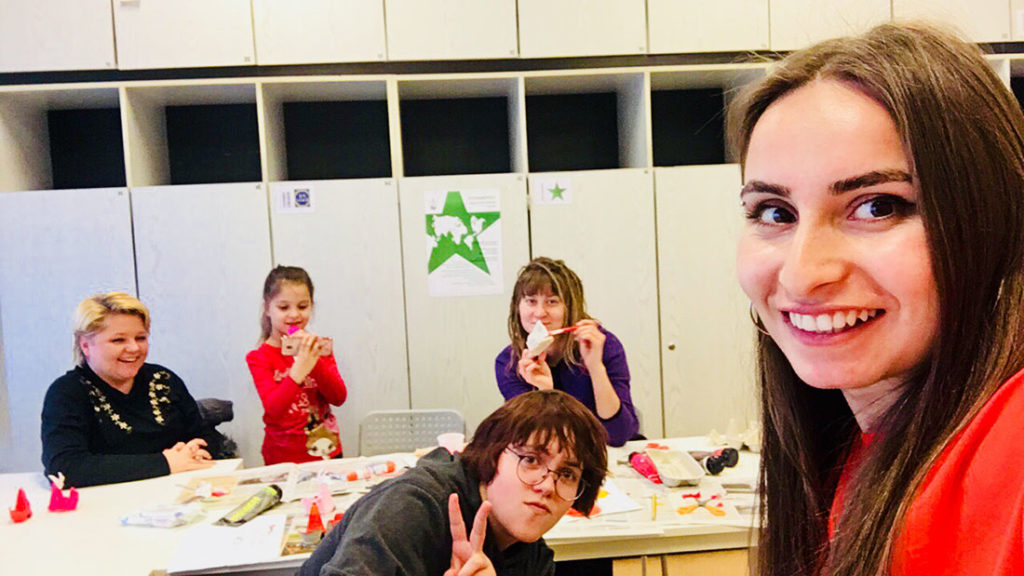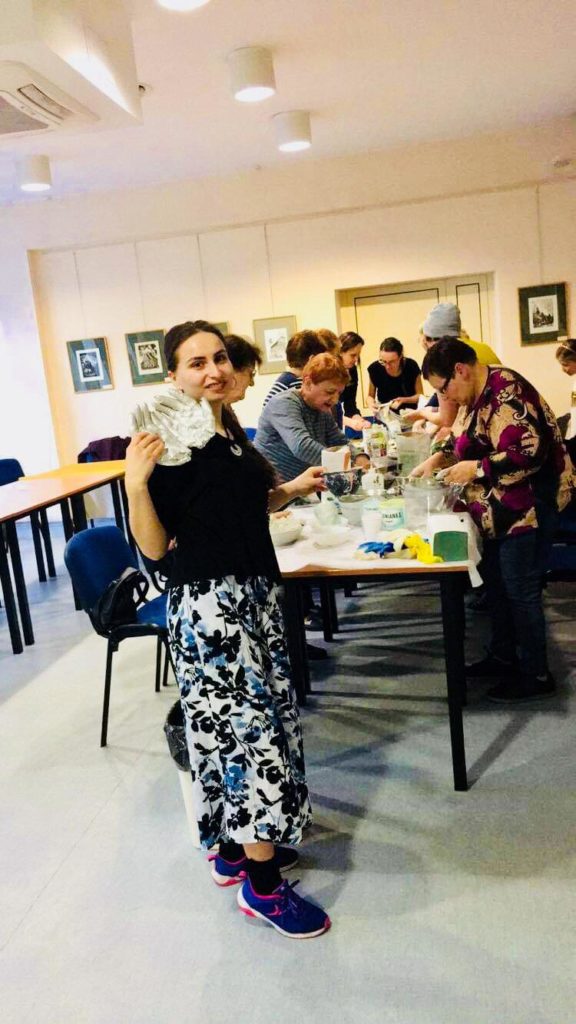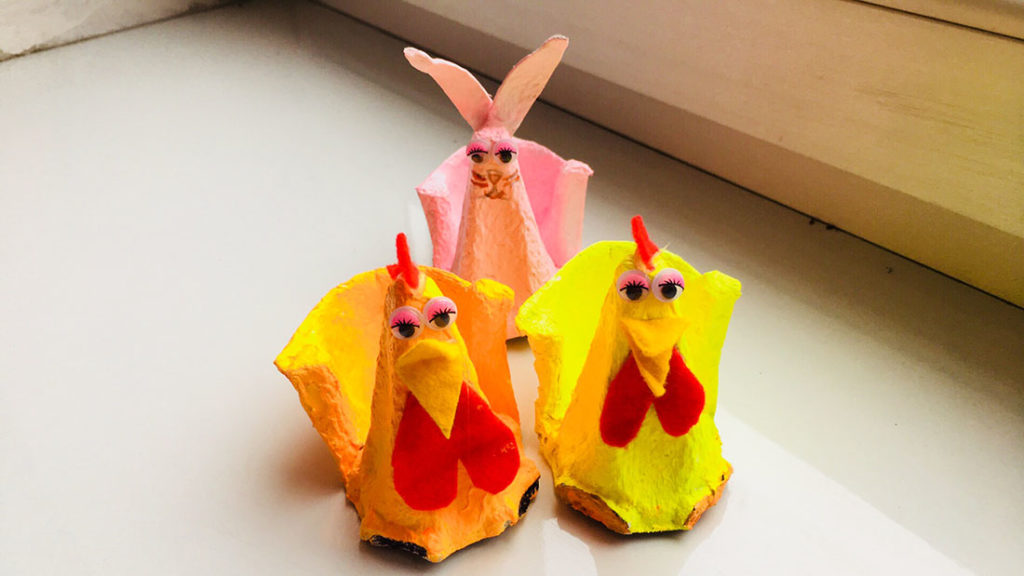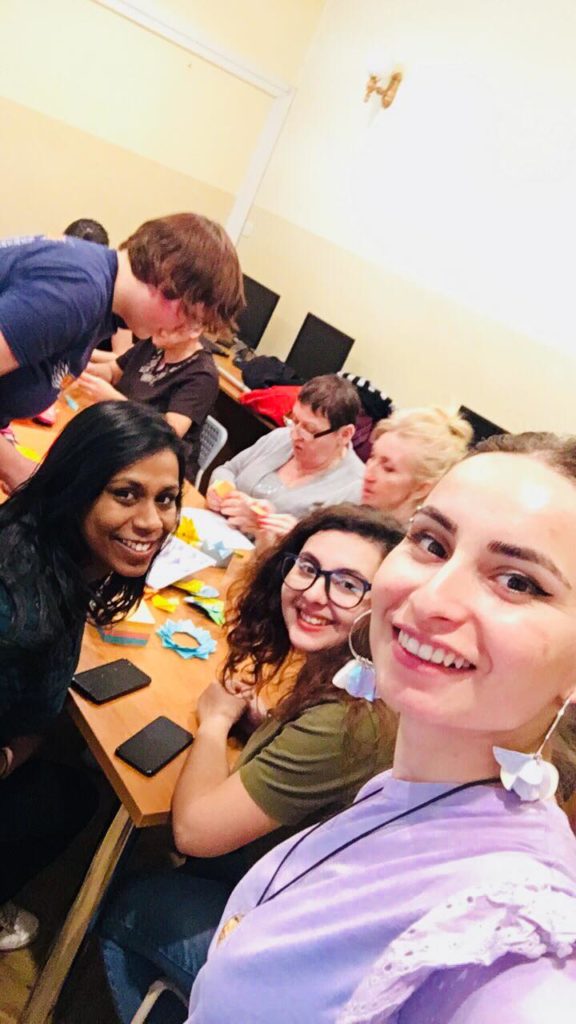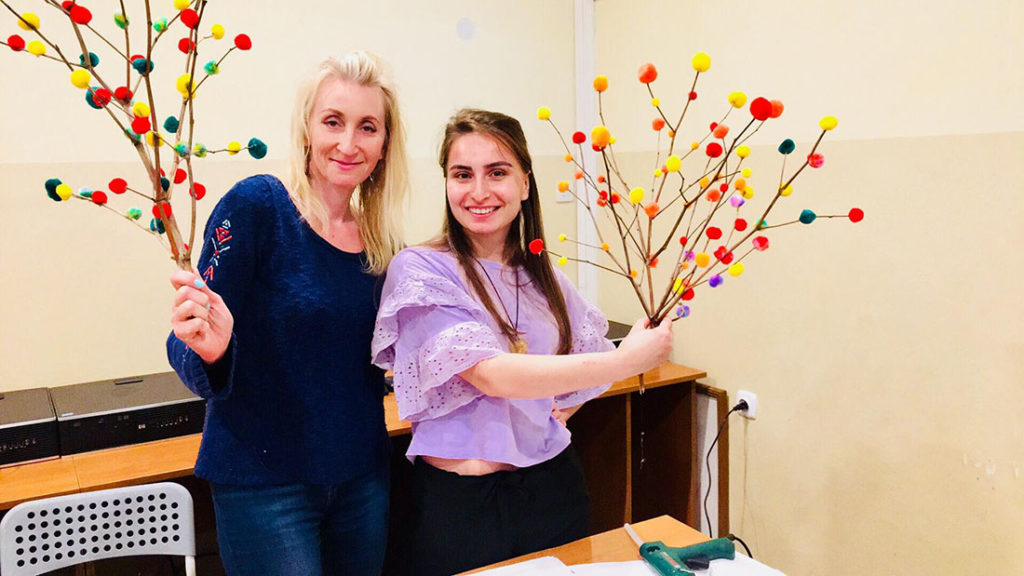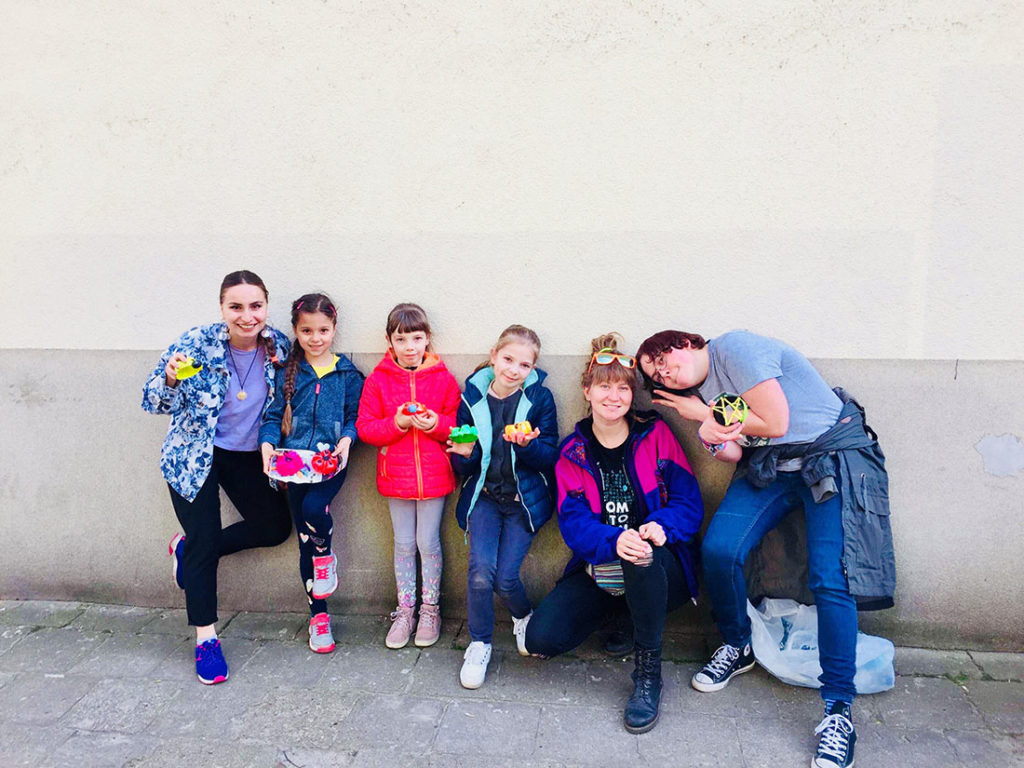My EVS story begins in fact long time before my actual becoming the EVS volunteer. In my country I always wanted to gain more and more voluntary experience, as I have been volunteer since I can remember. I was voluntering in Georgia but one day I asked myself so important question – How can we make a global change? Positive global change. It sounds good, isn’t it? But after this I realized something. Even the most breathtaking, marvellous changes start with small steps. These small steps I was doing during my EVS project. Step after step. After my project I will share my experience I gained, with my peers in Georgia, and they will share it further… and somewhere in the end of this road looms The Global Change.
Some steps have led me where I am standing (or rather still moving forward!) now. I would like to show below how these steps looked like.
Step 1. English language improvement.
When I was going to my EVS project, to Poland, I had in my head some fears about my English language skills. I was afraid of not being understand, having difficulties to understand tasks in everyday work or just buying things in the shop. Some of these fears confirmed, some of them not, but I knew that I had to work hard with my English. For several months I was working very hard and it turned out very fruitful. I acquired better grammar skills, got to know new phrases, structures, words. My language skills were increasing everyday, because everyday I had new challenges. The most I was speaking with my peers and also with just random people, the most I learnt. I notice, that it is important to just stop being afraid of speaking in foreign language.
Step 2. Implementing own Erasmus+ project.
During my EVS project I had an opportunity to implement my own Erasmus+ project. I always wanted to understand and study how it looks like behing the scene. I had to make my project from scratch. There was figuring out a project topic, planning, finding partners and filling a lot of documents. I worked also on the budget and it was really good experience for me, which I am sure I willl use in future. Firstly I was little bit intimidated about working with budget, but I have seen that I can really get along with it. Implementing this project was not an easy job for me, as I don’t have my own laptop. I had to often borrow laptop to finish implementation on time, but I am very proud of my work.
Step 3. Organizing workshops for Polish children and seniors.
Big part of my project took preparing and having workshops – manual and about ecology. I have seen that in the district where I work are a lot of rubbish, so I immediately thought about having the ecological project. I prepared several workshops about ecology, and about reusing things which are only seemingly rubbish. I wanted people to see that they are throwing our sometimes things which in fact need to be recycled, or they can make something really interesting from them. As it is the biggest part of the work – preparing was the most time-consuming. The feeling though when I saw seniors and children doing wonderful things at my workshops – marvellous. I would like to fragment this step for several small steps.
Preparation.
In this sub-step I had to gather all essential materials. I have learnt how to make purchases on the invoice. It made also several interesting situations at shops, but from these situations of course I got out of course only positive knowledge. I was able to fumble in the Internet to find the best examples of things which I can make from seemingly useless things, so this what othe people can name rubbish. I got to know many things from these researches. I know now that we, as the humanity, are wasting many, many materials. Preparations to these workshops engaged also my digital skills to grow. I had to desing posters, make facebook events and evaluate workshops by writing articles. To design posters I used internet website: www.canva.com. I had to prepare events both – in Polish and English language, so I my foreign language skills growth in both languages here. I had a responsibility also to prepare examples of things which were creating at workshops. I had to check if some things will be appropriate for seniors and for children. Making these things broadened my manual skills and also my patience.
Realization.
In my EVS project I have done totally 4 workshops about ecology for children and 5 manual workshops for seniors. For both groups I had to connect my non-verbal, English and Polish skills to explain them everything the best as I could (in these workshops when I didn’t have Polish-English translator support). At ecological workshops I have learnt children using non-formal education methods how important is to take care of environment. We did together beautiful decorations for home and garden. For making these things we used among others:
- Plastic bottles,
- Small, dry tree branches,
- Eggs boxes,
- Old paper,
- Glass bottles,
- Used rubber gloves,
- Used fabric.
Using these things helped children to understand how important is segregation and recycling. They were able to gain this knowledge by having a fun!
Making manual worshops for seniors was really magical experience. These people were very patient and eager to work. I wanted pass them some of my creativity and they really were able to make very good job! We did together decorations and useful things for home.
Step 4. Growth outside everyday EVS work.
Making workshops, work in the office, implementing own Erasmus+ project, cooking khachapuri for seniors… all of this made indisputable growth of my skills. I cannot forget though about just everyday life. Going to the shop, seeing things which I cannot see in Georgia, as well as things which are not in Poland. Comparing, comparing, comparing… and learning because of this, and exporting my experience and knowledge to my country, to begin a change. Because of small steps…

